'Breathing them in is not a good idea' – 7 things to never put in your humidifier, from tap water to perfume
HVAC pros warn that these liquids could seriously damage your machine


Design expertise in your inbox – from inspiring decorating ideas and beautiful celebrity homes to practical gardening advice and shopping round-ups.
You are now subscribed
Your newsletter sign-up was successful
Want to add more newsletters?

Twice a week
Homes&Gardens
The ultimate interior design resource from the world's leading experts - discover inspiring decorating ideas, color scheming know-how, garden inspiration and shopping expertise.

Once a week
In The Loop from Next In Design
Members of the Next in Design Circle will receive In the Loop, our weekly email filled with trade news, names to know and spotlight moments. Together we’re building a brighter design future.

Twice a week
Cucina
Whether you’re passionate about hosting exquisite dinners, experimenting with culinary trends, or perfecting your kitchen's design with timeless elegance and innovative functionality, this newsletter is here to inspire
There are myriad benefits to using a humidifier for both your health and home, but do you know about the things you should never put in yours?
While some may seem obvious, such juices or perfume, you may be using others, like tap and hot water, unknowingly, causing irreparable damage to your machine and reducing its lifespan.
Here, HVAC pros share why it's best to use your humidifier solely for increasing the humidity in a house, and not for scenting your home, relieving illness symptoms, and more.
7 things to never put in your humidifier
Josh Mitchell, HVAC technician at AirConditionerLab, begins, 'I get a lot of questions about humidifiers, and honestly, one of the biggest issues I see is people putting things into the tank that just shouldn't be there. I understand the intention. People want the air to feel better or smell cleaner, but some of these habits can damage the unit or affect your health.'
Therefore, these are the things you should always avoid putting in yours.
1. Tap water
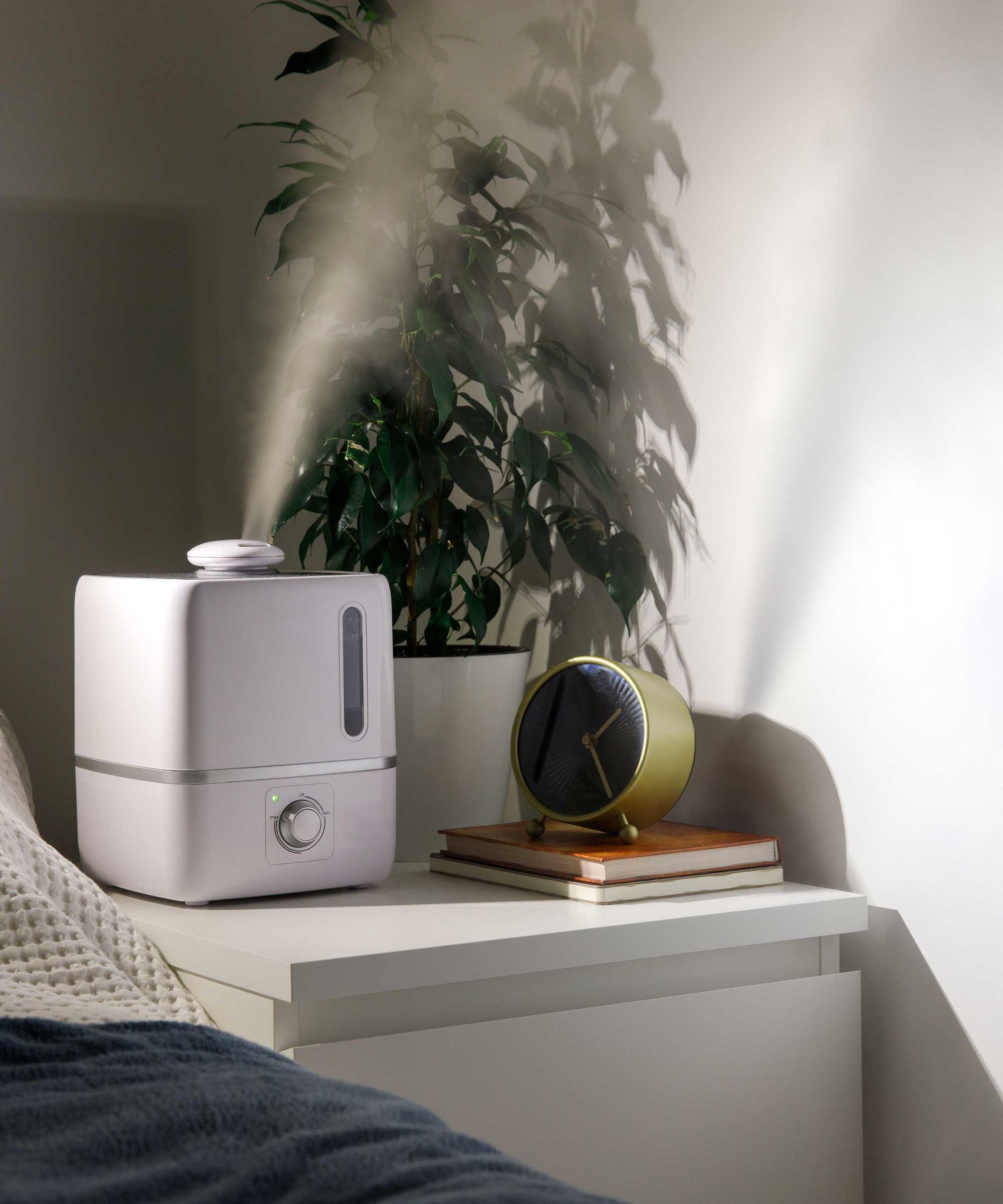
Tap water leaves behind mineral build-up.
One of the main, but less obvious, things you should never put in your humidifier is tap water.
As TJ Laury, president at Ben's ProServ, says, 'Most people probably use tap water in their humidifiers, but did you know tap water leaves behind mineral buildup, clogs parts, and creates white dust in your home?'
Design expertise in your inbox – from inspiring decorating ideas and beautiful celebrity homes to practical gardening advice and shopping round-ups.
Therefore, TJ recommends using distilled or demineralized water, such as the Amazon Grocery Distilled Water available at Amazon, which you can also use to make scented ironing water and steam clean windows, to avoid damage and keep the air healthier.
'You'll likely find this recommendation in the instructions of your dehumidifier as well,' he adds.
If you're not sure whether your water poses a risk, Josh suggests using a basic TDS meter, such as the Water Quality Tester available at Amazon. 'If the total dissolved solids are over 120 ppm, I recommend switching the distilled water,' he explains.
2. Perfume or cologne
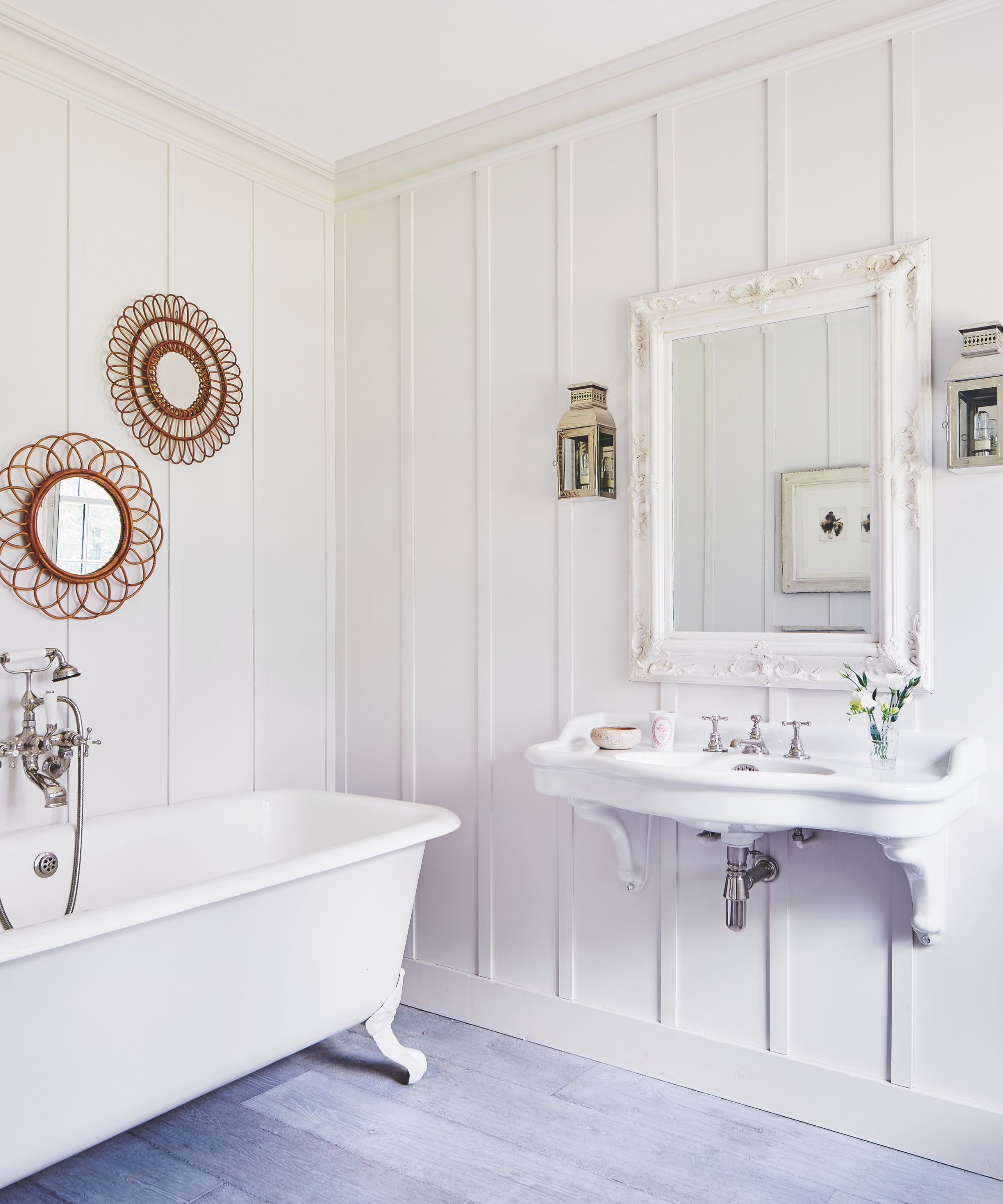
Putting perfume in your humidifier may cause irreparable damage.
It makes sense that you might think adding perfume or cologne to your humidifier is a quick way to make your home smell nice, but doing so can actually damage your machine, warns Josh.
'They're full of alcohol and synthetic ingredients that can corrode internal parts,' he explains. 'Breathing them in is not a good idea either.'
Instead, try more conventional ways to make your home smell nice, or make your home smell expensive, such as lighting your best candle or investing in one of the best reed diffusers.
3. Essential oils
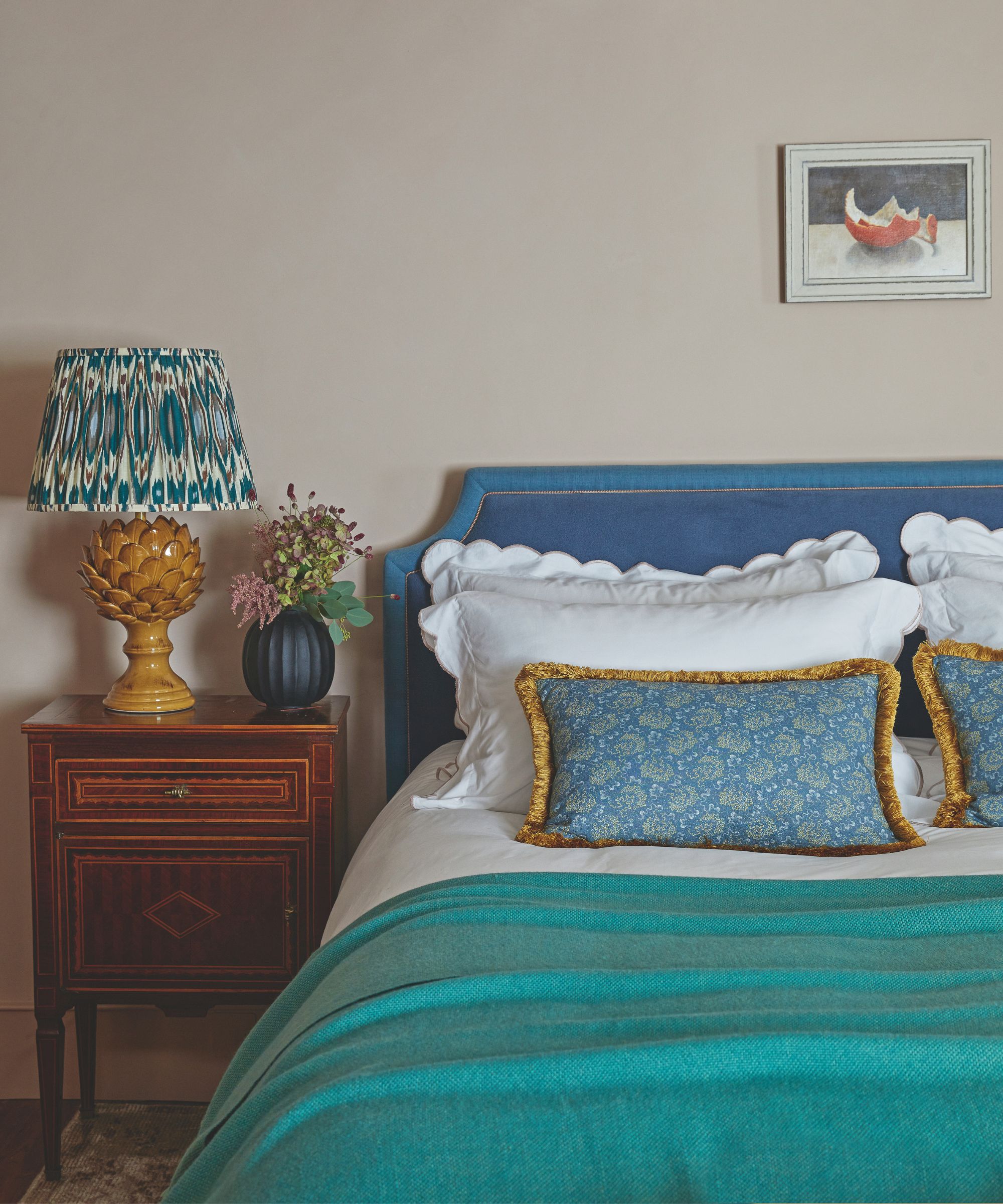
Essential oils can clog some humidifiers.
Similarly, essential oils are one of the things to never put in your humidifier.
'This one comes up a lot,' says Josh. 'Unless your humidifier specifically says it can handle oils, don’t add them. Humidifiers are designed to add moisture to the air, typically to alleviate dry skin, congestion, or sore throats. Diffusers are made for scent.
'Putting oils into a regular humidifier can clog the mist outlet, damage internal sensors, and shorten the life of the unit. I’ve seen small tabletop models stop working completely after just a few uses.'
You can, however, clean with essential oils, and use essential oils in laundry. For scenting, stick to using one of the best essential oil diffusers, such as the Noahstrong Essential Oil Diffuser available at Walmart.
4. Hot water
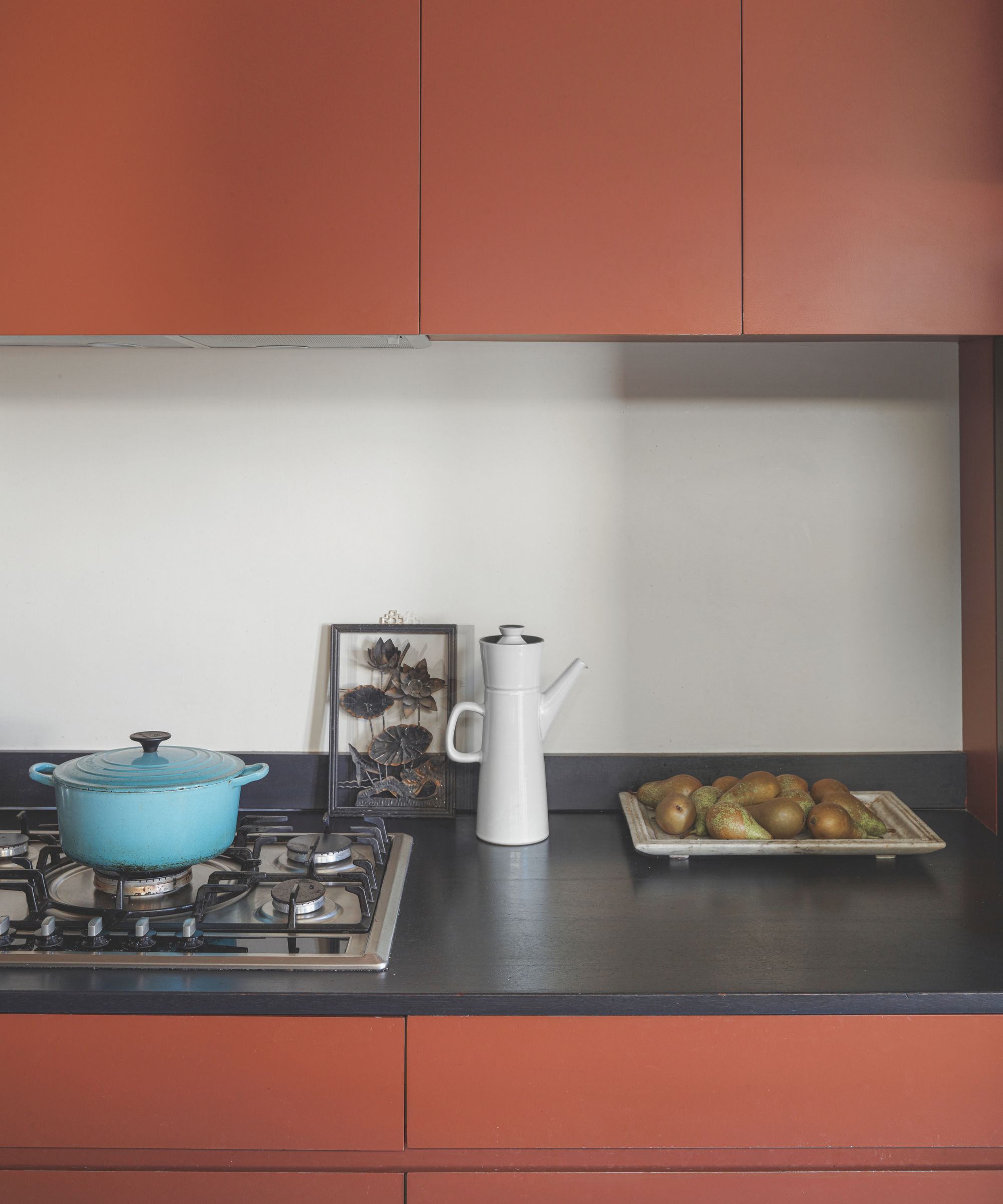
Never use water from the kettle in your humidifier.
'It might seem like a faster way to get results,' says Josh, 'but using hot water can cause minerals to break down more quickly.'
Importantly, this leads to extra white dust and build-up, and also wears out plastic parts faster.
'Stick with cool or room-temperature water,' continues Josh. 'If you want to cut down on maintenance and avoid buildup, I usually recommend Poland Spring Distilled Water, available at Walmart.'
5. Vinegar or bleach
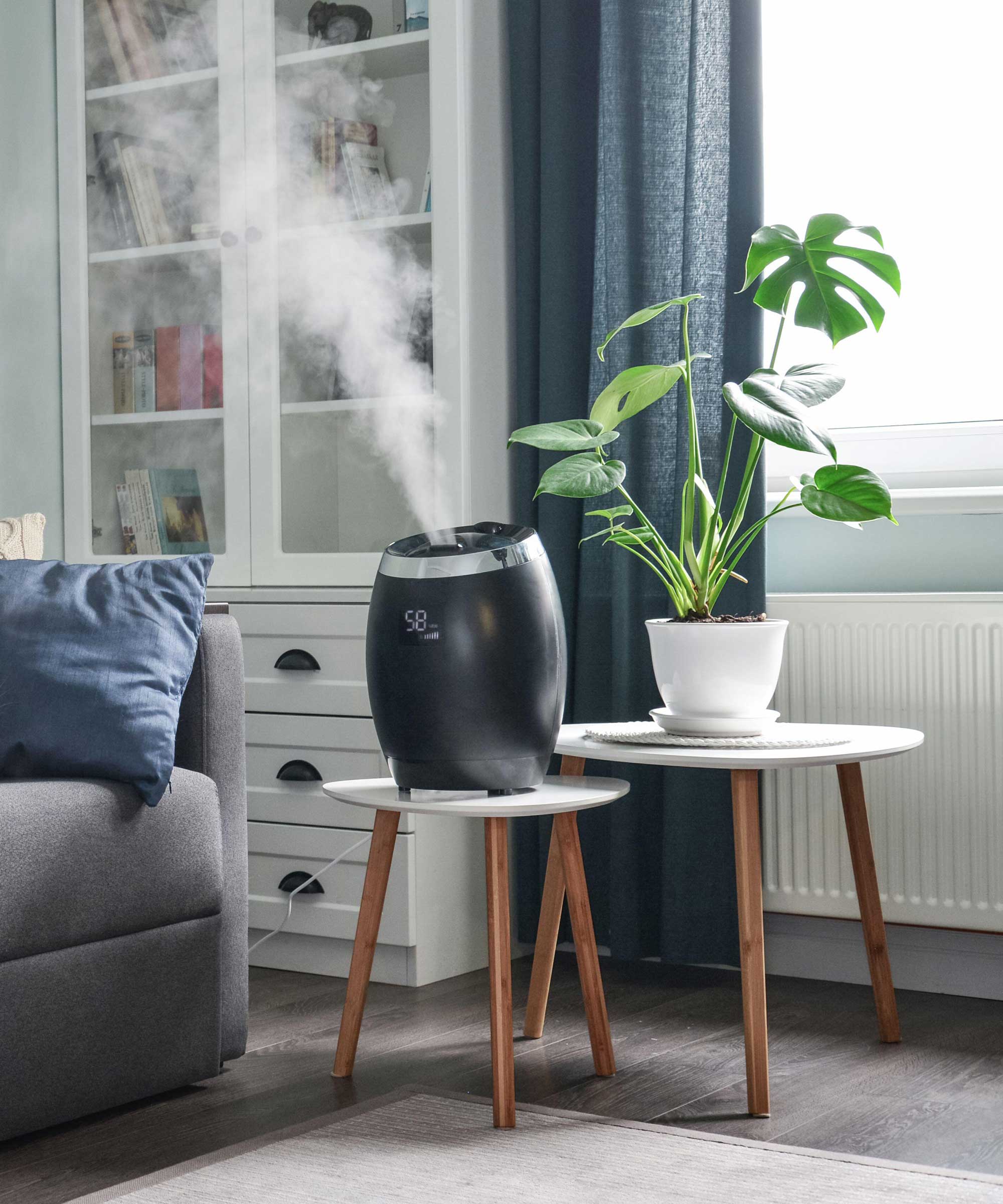
Vinegar should only be used for cleaning your humidifier.
While vinegar can be used to clean your humidifier, bleach and vinegar should never be used when your unit is running.
Glenn Wiseman from Top Hat Home Comfort, explains, 'The residual fumes can be irritating to the lungs and eyes if inhaled. Harsh chemicals can corrode internal HVAC components or be dispersed throughout your ductwork.'
Therefore, stick to using these products for cleaning only (avoiding harmful bleach where possible) and thoroughly rinse the humidifier out afterwards.
6. Liquid beverages
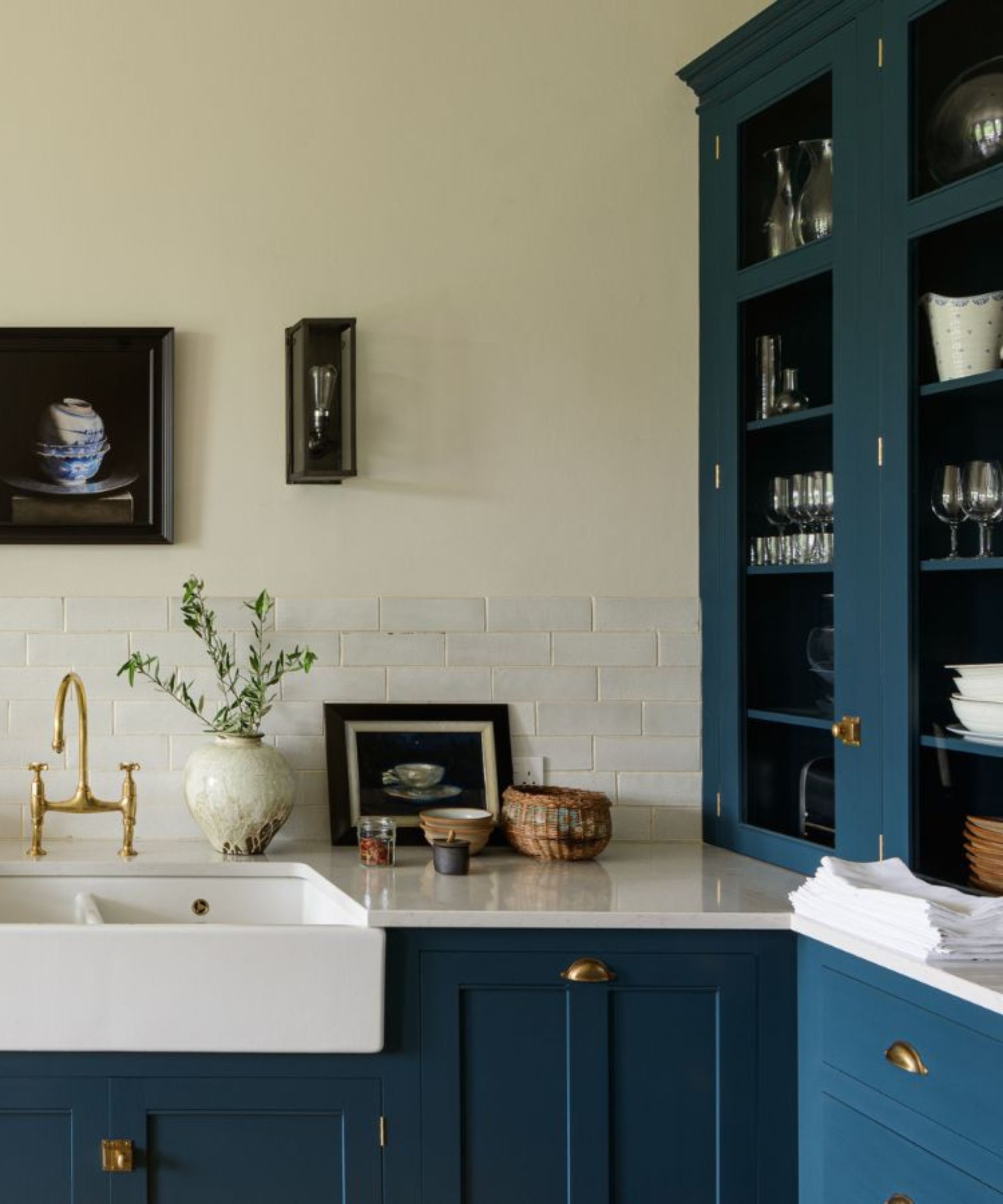
Distilled water is the only liquid that should be used in your humidifier.
This one should be self-explanatory, but, advises TJ, 'don't pour juice or any other liquid into your humidifier.'
'These liquids spoil, clog the machine, and lead to mold and mildew growth,' he explains. 'Apple juice isn't going to make your room smell like apples; it's going to ruin your humidifier.'
7. Vapor rubs
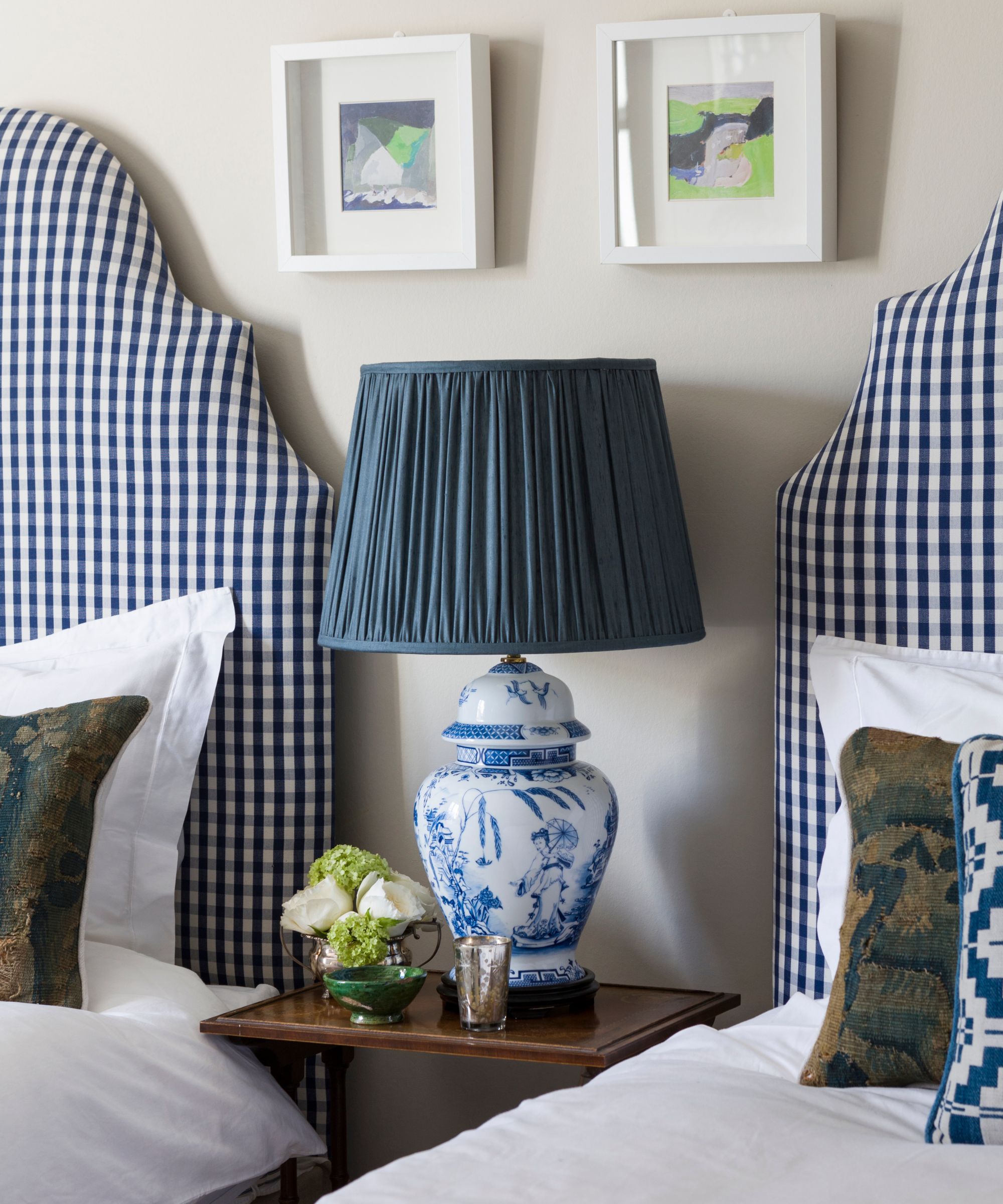
Vapor rubs are too thick for your humidifier.
Finally, says Josh, it might be tempting to add vapor rubs like Vicks to your humidifier when someone is sick, but these products are too thick for most humidifiers.
'They can block the mist outlet, coat internal parts, and even damage plastic components,' he advises. 'If you want that menthol smell, only use humidifiers that come with a dedicated scent tray for those products,' such as the Vicks Warm Mist Humidifier available at Amazon.
'Otherwise, stick to applying it directly to the skin as directed,' and take extra care to thoroughly clean when someone is ill.
What to shop
All prices were correct at the time of publication.
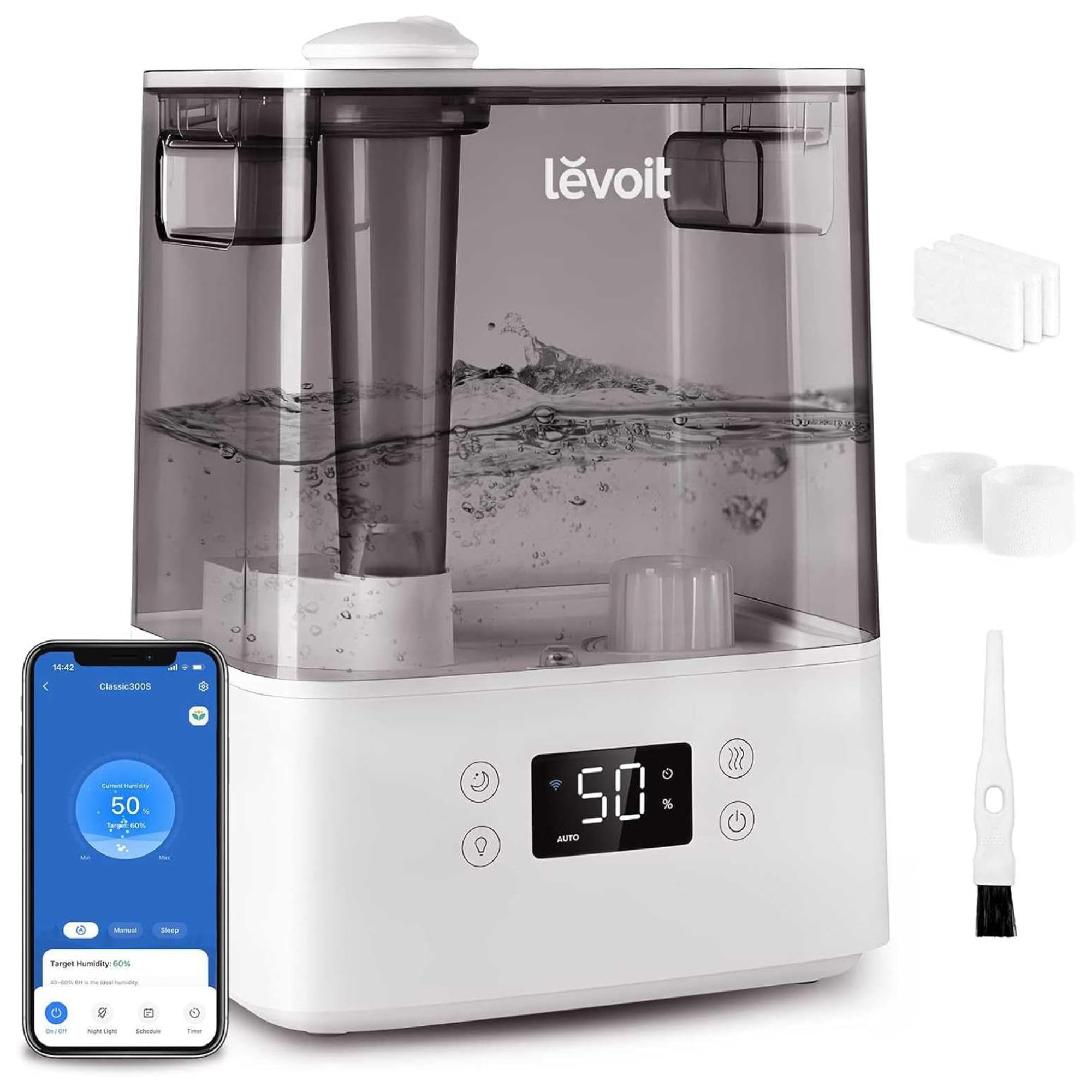
This smart humidifier uses a built-in sensor to automatically keep the humidity levels in your home between 40 and 50%, with app control for remote, worry-free convenience.
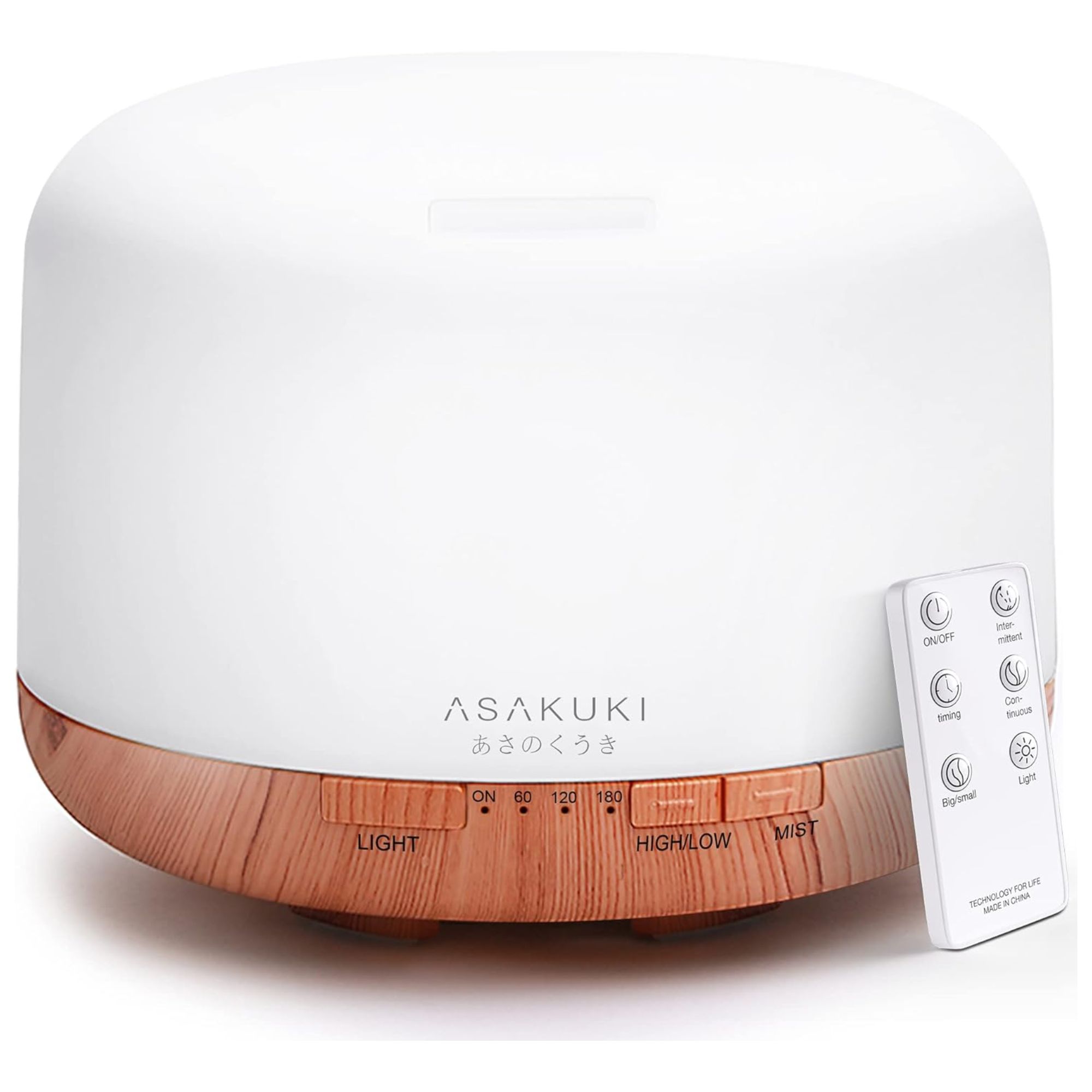
This essential oil diffuser makes scenting your home easy, with seven LED light colors, multiple mist nebulizer modes, and an auto-off feature for safety. It is also safe for use with essential oils.
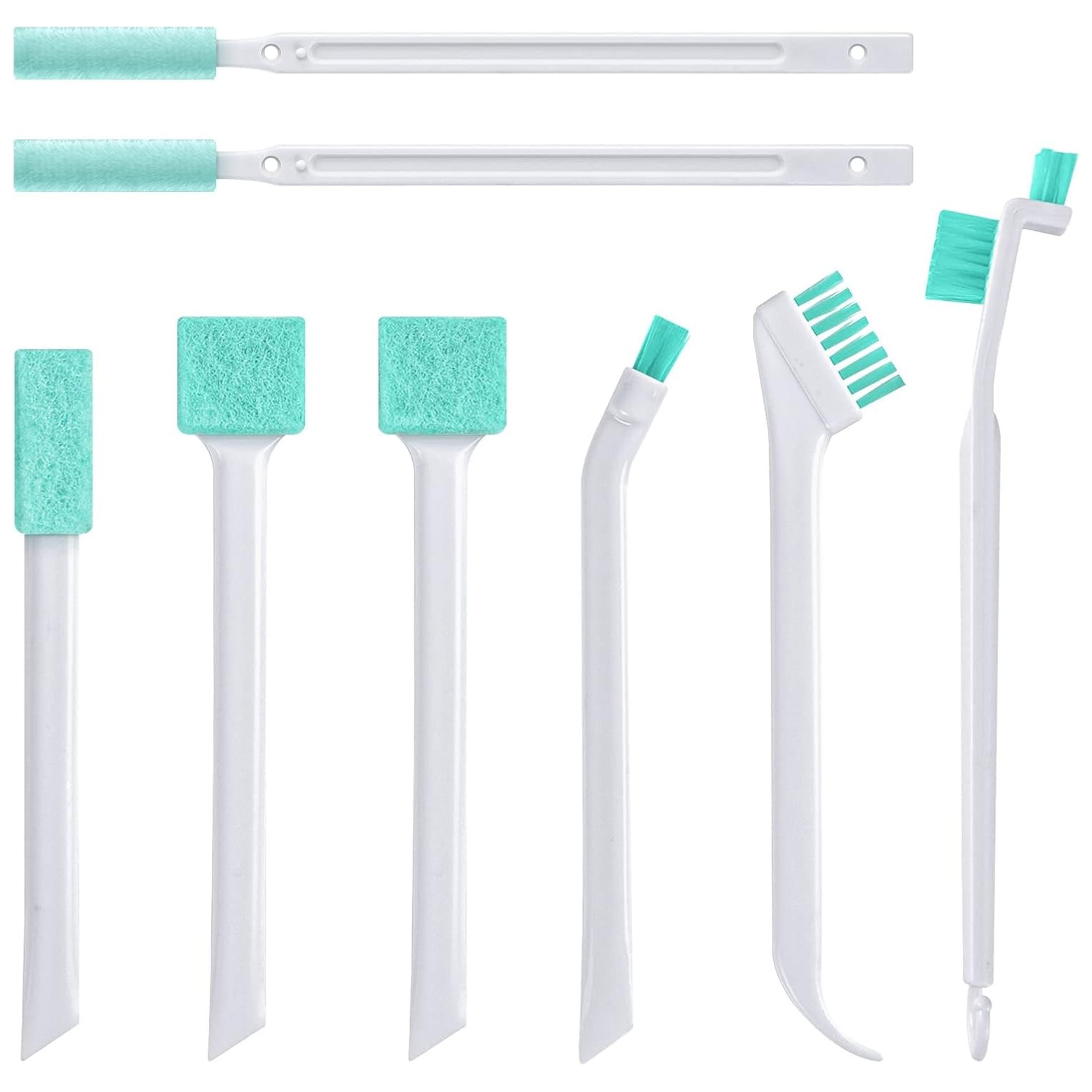
These tiny brushes are ideal for cleaning all the parts of your humidifier, as well as your toaster, window grooves, baseboards, and more.
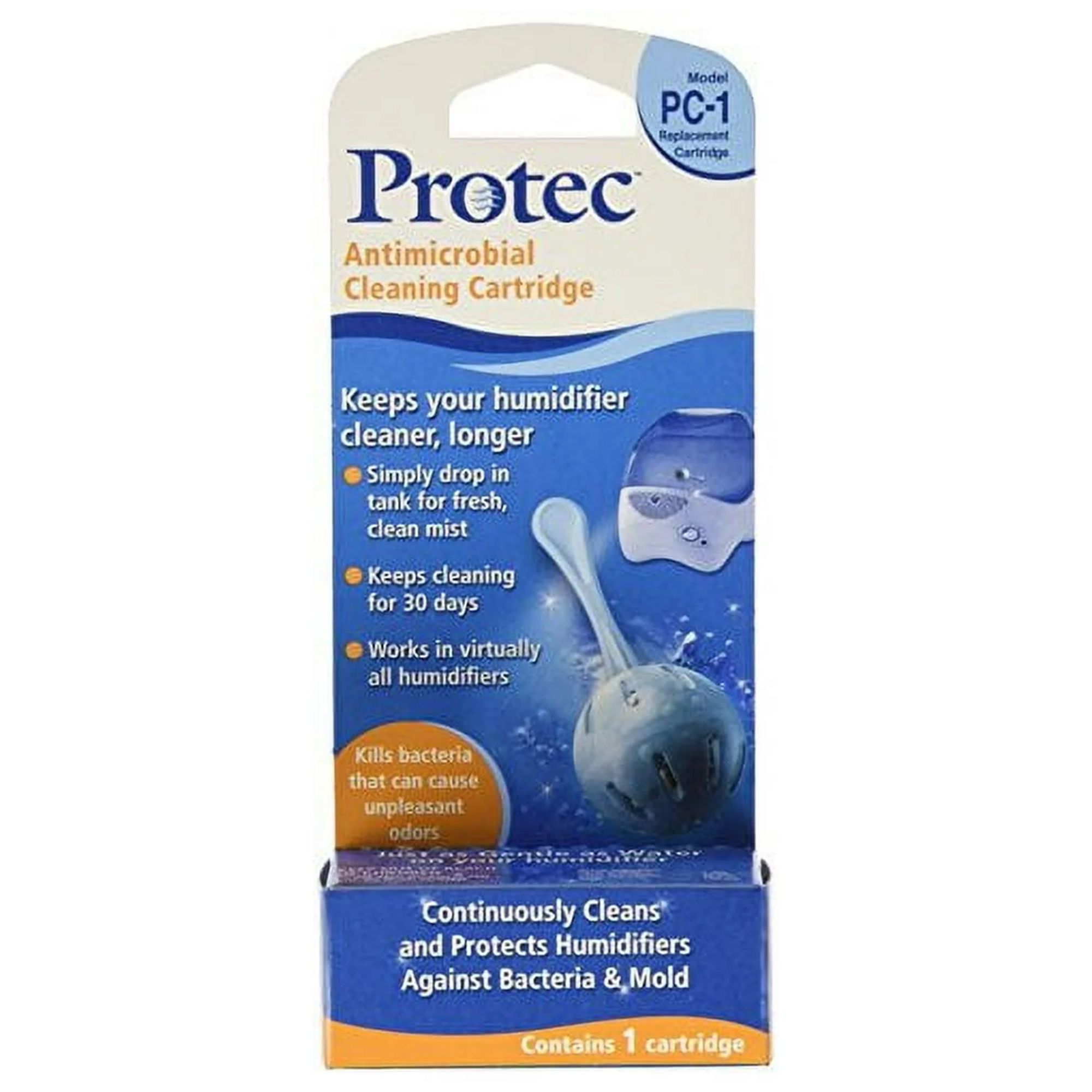
This cleaning cartridge works in nearly all models and protects humidifiers against bacteria and mold while cleaning for up to 30 days.
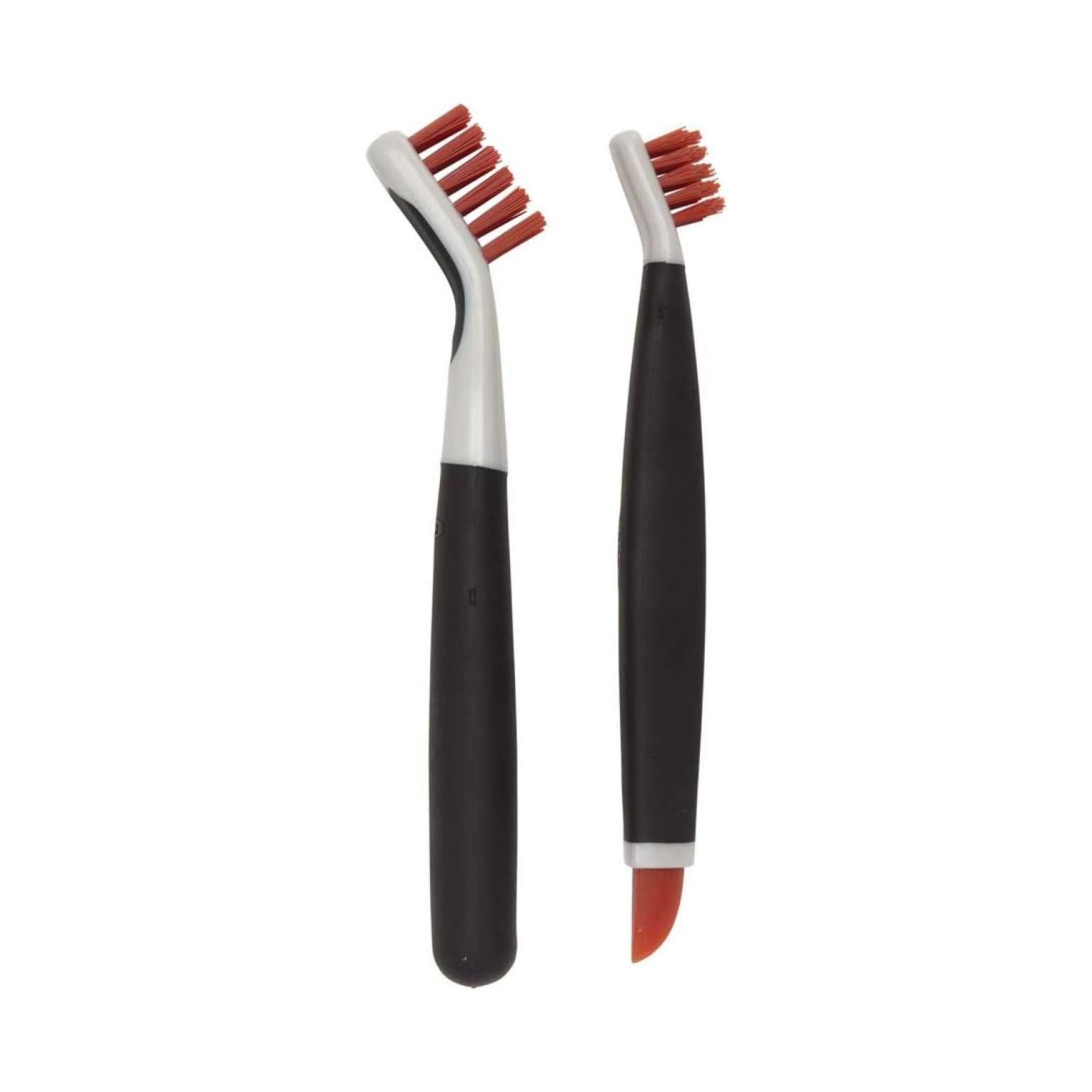
Get into all the nooks and crannies of your humidifier with this OXO brush set, which features durable nylon scrubbing bristles.
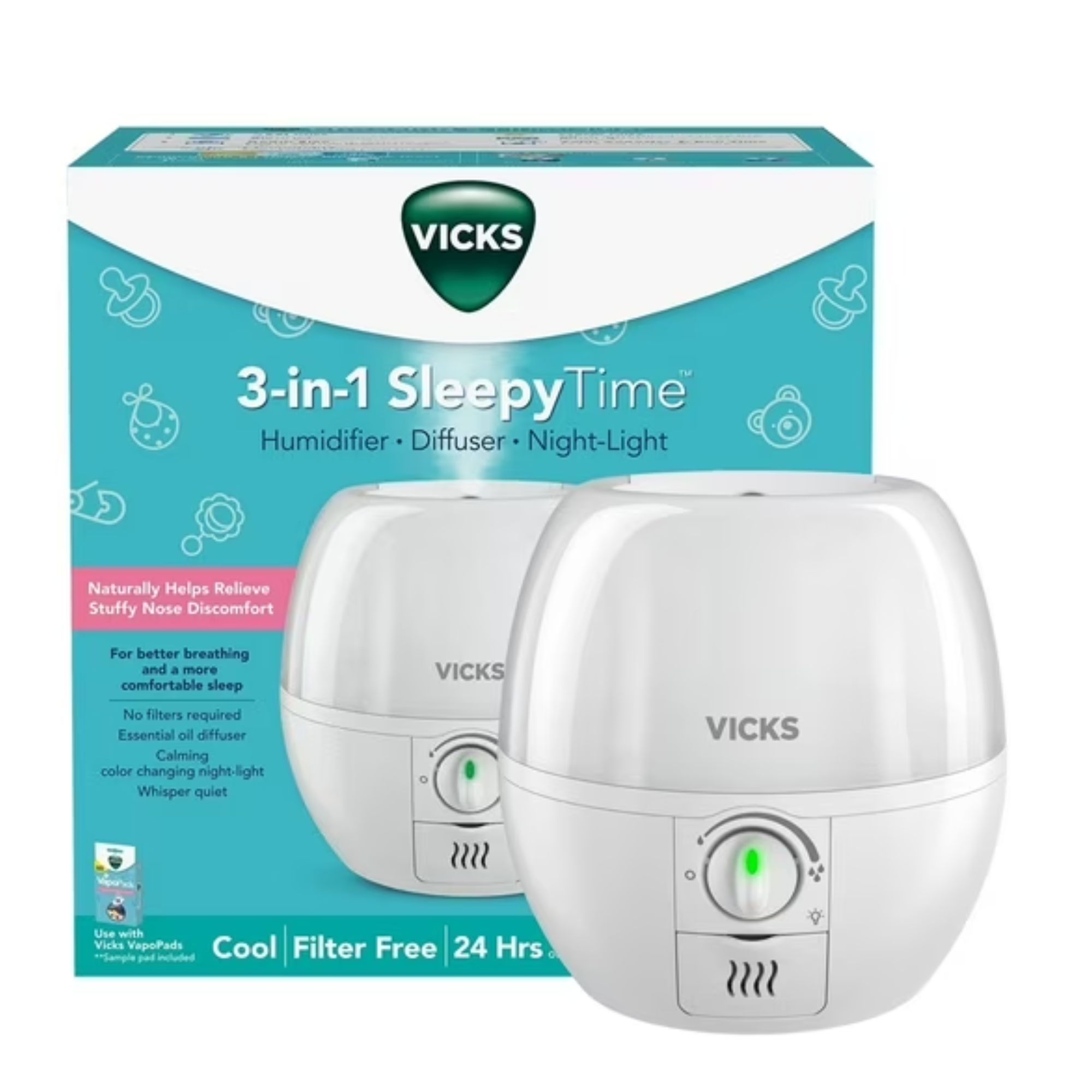
Rather than putting vapor rubs in your humidifier, invest in this three-in-one product that's a humidifier, diffuser, and night-light, allowing you to personalize your rest for ultimate comfort.
Meet our experts

Air Conditioner Lab was founded by HVAC and tech enthusiast Josh in 2014, who has extensive knowledge on all things home heating, cooling and air quality.

TJ is a co-owner of Ben's ProServ, founded with his father, Ben, and brother-in-law, Stan. TJ grew up in the HVAC industry, learning from his father as young as 12 years old. TJ pursued a passion for film for a few years after school, traveling and filming overseas, but eventually came back to the family business, where he now serves as the president.
Josh concludes, Try to clean your humidifier every three to four days, not just once a week. Even if the water looks fine, bacteria can grow quickly in damp environments. A quick rinse and wipe-down will help keep the unit working properly and the air safer to breathe.'
Don't forget to clean your dehumidifier, too.

Ottilie joined Homes & Gardens in 2024 as the News Writer on Solved, after finishing a Master's in Magazine Journalism at City, University of London. Now, as the Sleep Editor, she spends her days hunting deals and producing content on all things sleep – from mattresses and sheets to protectors and pillows, all of which she tests in her own home. She also has particular expertise in home fragrance, covering everything from candles to reed diffusers.
Previously, she has written for Livingetc and Motorsport Magazine, and also has a Master's degree in English Literature and History of Art from the University of Edinburgh, where she developed a love for inspiring interiors and architecture.